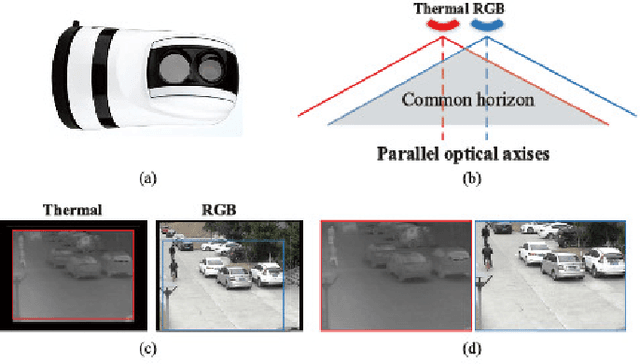RGB-T Object Tracking:Benchmark and Baseline
Paper and Code
May 23, 2018



RGB-Thermal (RGB-T) object tracking receives more and more attention due to the strongly complementary benefits of thermal information to visible data. However, RGB-T research is limited by lacking a comprehensive evaluation platform. In this paper, we propose a large-scale video benchmark dataset for RGB-T tracking.It has three major advantages over existing ones: 1) Its size is sufficiently large for large-scale performance evaluation (total frame number: 234K, maximum frame per sequence: 8K). 2) The alignment between RGB-T sequence pairs is highly accurate, which does not need pre- or post-processing. 3) The occlusion levels are annotated for occlusion-sensitive performance analysis of different tracking algorithms.Moreover, we propose a novel graph-based approach to learn a robust object representation for RGB-T tracking. In particular, the tracked object is represented with a graph with image patches as nodes. This graph including graph structure, node weights and edge weights is dynamically learned in a unified ADMM (alternating direction method of multipliers)-based optimization framework, in which the modality weights are also incorporated for adaptive fusion of multiple source data.Extensive experiments on the large-scale dataset are executed to demonstrate the effectiveness of the proposed tracker against other state-of-the-art tracking methods. We also provide new insights and potential research directions to the field of RGB-T object tracking.
 Add to Chrome
Add to Chrome Add to Firefox
Add to Firefox Add to Edge
Add to Edge